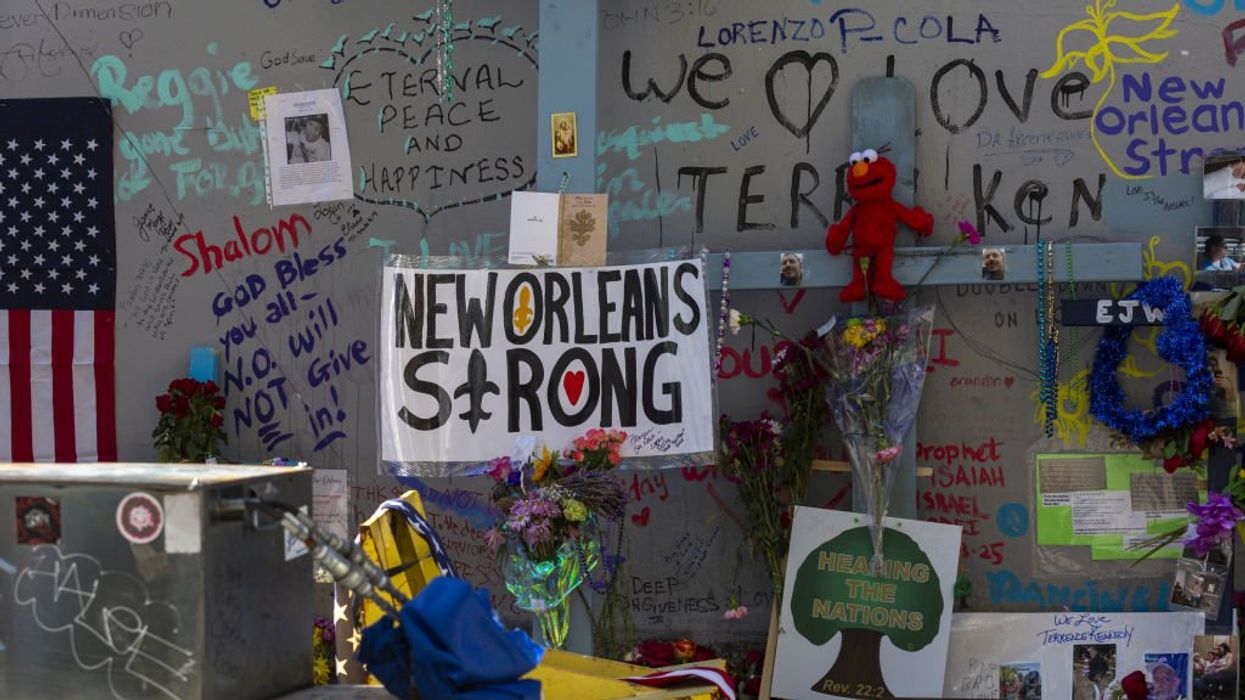The end of 2024 and the beginning of 2025 have brought an onslaught of terror attacks and tumult. While the incidents that occurred over the last several months may not be connected, they do usher in a sense of chaos and fear.
As a country, to meet this moment of terror, we must all look both outwards and inwards.
All while balancing the public’s safety and protecting our beloved freedoms.
While not exhaustive, here are a few of the terror-inducing events that have occurred over the last several months:
On Dec. 4, 2024, Brian Thompson, the CEO of UnitedHealthcare, was shot and killed in Midtown Manhattan, New York City, in a “brazen, targeted attack” as he walked toward a hotel, New York police said. Luigi Mangione, the man accused of killing Thompson, was later charged with 11 counts, including murder in the second degree as a crime of terrorism.
Debrina Kawam of Toms River, N.J., was burned alive on Dec. 22, 2024, on a New York City subway. Kawam was asleep on a subway train that stopped at a station in Brooklyn’s Coney Island when her clothes were set ablaze. Sebastian Zapeta-Calil allegedly fanned the flames with a shirt, engulfing her in the blaze, before sitting on a platform bench and watching as she burned. Zapeta-Calil pleaded not guilty to first-degree murder and other charges.
A total of 14 people were killed, and 35 people were injured after a man drove a truck into a crowd at Bourbon and Canal streets in New Orleans on New Year's Day in a terrorist attack, according to the Federal Bureau of Investigations (FBI). The FBI confirmed the identity of the suspected driver of the truck as Shamsud-Din Jabbar of Texas. Jabbar was an Army Veteran who claimed to be a member of ISIS. He had an ISIS flag, an ice chest with pipe bombs, guns, and IEDs at the time of the attack. Jabbar was killed after being shot by the New Orleans Police Department.
The FBI shared that Jabbar said he joined ISIS before the summer and had originally planned to kill his family but felt that killing his family "would not focus on the war between the believers and disbelievers."
Also on New Year's Day, another Army veteran fatally shot himself in a Tesla Cybertruck just before it blew up outside the Trump hotel in Las Vegas, Nevada. Matthew Livelsberger, a 37-year-old Green Beret from Colorado Springs, Colorado, left notes saying the New Year’s Day explosion “Was not a terrorist attack, it was a wakeup call. Americans only pay attention to spectacles and violence. What better way to get my point across than a stunt with fireworks and explosives.”
The FBI defines domestic terrorism as “Violent, criminal acts committed by individuals and/or groups to further ideological goals stemming from domestic influences, such as those of a political, religious, social, racial, or environmental nature.” International terrorism differs in that those violent acts or crimes “are committed by individuals and/or groups who are inspired by, or associated with, designated foreign terrorist organizations or nations (state-sponsored).”
The goal of a terrorist, foreign or domestic, is to instill fear into our communities. Anyone who lived through the deadliest terrorist attack on American soil on Sept. 11, 2001, knows this to be true.
Our society can deal with these intrusions on our safety and security and push back on our fears by looking outward to our leaders and elected officials and inward by strengthening our personal relationships and communities.
Citizens can hope that the elected officials who were recently elected, as well as the leaders of our institutions, will take our collective security seriously. We should also expect that those very leaders will share accurate information and not spew misinformation or share inaccurate reporting on the suspects or perpetrators of these crimes.
The Department of Homeland Security (DHS) has a wealth of resources on its website to prevent targeted violence and terrorism, including a Prevention Resource Finder. These resources include community support, grant funding opportunities, information-sharing platforms, evidence-based research, bullying, depression, domestic violence, mental health support, gun safety best practices, and training opportunities for communities to reduce the risk of targeted violence, including hate-based targeted violence.
DHS suggests that preventing targeted violence and terrorism requires a community approach. Their list of community members includes educators, law enforcement, health care practitioners, behavioral and mental health professionals, faith-based organizations, and state, local, tribal, and territorial governments.
Omitted from DHS’ list is each of us as individuals, who are called to do our part. Just look at the words from our national anthem, “The Star-Spangled Banner,” which reminds us that we live in the land of the free and the home of the brave.
The FBI’s Counterterrorism Division recommends US citizens can:
- Report suspicious activity: Individuals can report suspicious activity to the FBI by calling 1-800-CALL-FBI (1-800-225-5324) or by visiting tips.fbi.gov.
- Be aware of signs of radicalization: Individuals can recognize the signs that someone they know might be mobilizing to violence or other criminal activity.
- Prioritize safety: Individuals should prioritize their safety.
It's important to stay aware of our surroundings without becoming overly anxious. Knowing potential safety concerns can empower us to respond appropriately if we notice something unusual. Being informed can help us feel more secure and prepared.
The fear of terrorism can be debilitating. While it is important to stay informed, limit media exposure, practice relaxation techniques, develop safety plans, seek support from loved ones, and reach out to professionals if anxiety becomes overwhelming.
Essentially, trying to maintain a sense of control by acknowledging fears while focusing on daily life and taking practical steps to mitigate risks are key practices in coping with the anxiety and fear of terrorism and violence.




















Trump & Hegseth gave Mark Kelly a huge 2028 gift